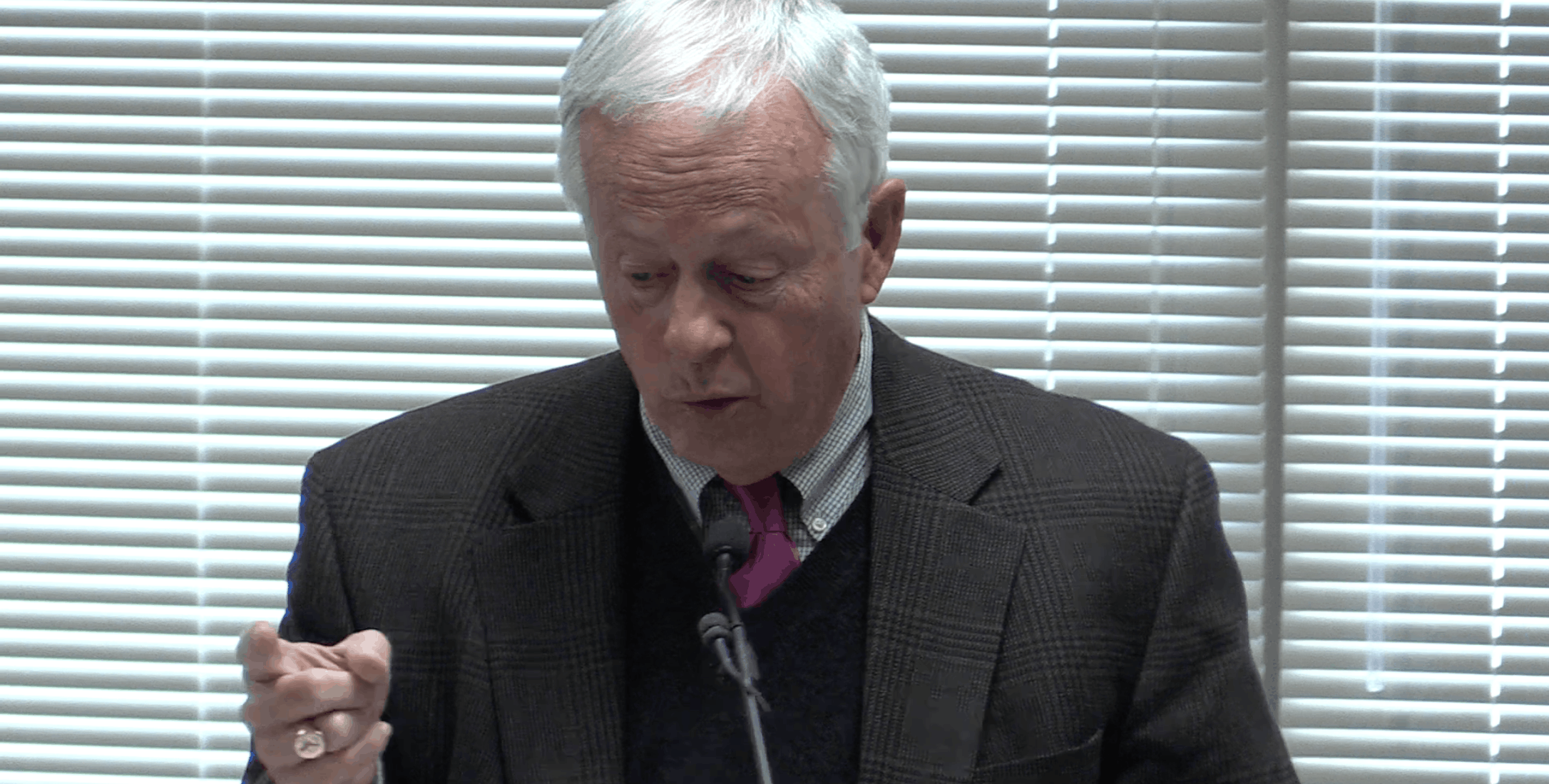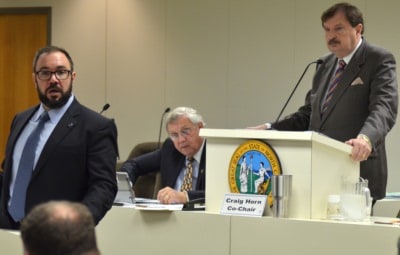The Joint Legislative Study Committee on School-Based Administrator Pay met for the second time Monday and heard from a panel of experts on the issue of reforming the principal pay salary schedule.
The Committee met for the first time in October to discuss the variety of issues with the principal salary schedule. See our coverage of that meeting here.
During that meeting, Committee co-chair Sen. Jerry Tillman, R-Randolph, presented a plan that would eliminate the principal salary schedule and replace it with an allotment that superintendents could use as they see fit to hire principals.
There was considerable pushback against the idea from a group of superintendents and others who were invited in October to review and comment on the proposed plan.
During Monday’s meeting, Tillman did not give a concrete update on the original plan, though it sounded likely he wasn’t going to go ahead with the original idea presented in October.
“I wanted to throw the whole salary schedule out and have a minimum and a maximum,” he said. “Superintendents don’t quite want to bite that loaf off. They are afraid of that.”
He did say that the final plan would likely increase a bump in base salary of five percent or more, and extra funds would be used for bonuses that would be tied in some way to performance. He said it would take between $30 and $50 million dollars to make the changes happen.
“What we want to do is get a package that we can sell jointly as a budget provision,” he said. “In the next very few weeks, we’re going to be working to tie this together as a plan.”
Watch comments from Tillman and Committee co-chair Rep. Hugh Blackwell, R-Burke, below.
Panelists
Andy Baxter, vice president of Educator Effectiveness for the Southern Regional Education Board, presented first Monday, and said that the Committee was trying to solve a problem that few in the country had definitive answers on.
“There are no best practices,” he said. “This area of compensation in general, but in particular principal compensation, has not been a road that many people have traveled,” he said.
He listed a number of recommendations that he thought the Committee should follow.
He said the Committee should gather data, available in North Carolina, about principal mobility and attrition.
He also said that the Committee should be aware of the “egalitarian ethos of education.” He said that sometimes districts and schools are hesitant to award bonuses based on performance and may instead choose to divvy up money equally.
“I’m not saying it won’t happen, but there is a significant cultural reticence towards that in education”
See his full presentation and recommendations in the video below. Read his presentation here. Also read Baxter’s handout on performance incentives here.
Next up, Steve Tozer, professor of Education Policy Studies at the University of Illinois at Chicago, talked about the importance of principal preparation. In particular, he highlighted the strategies that Chicago uses to ensure good principals in its schools, which, he says, has turned around the city’s schools.
“We’ve had pretty astonishing results in the last dozen years or so…and it was those results that we set out to achieve.”
He said that principal prep programs should be run similar to how the medical profession trains new doctors, and that higher education programs should collaborate with the K-12 system.
He also emphasized the importance of principals for student performance.
“Wall-to-wall high performance in classrooms is dependent on school leadership,” he said.
Read his presentation here. See the video of his presentation below.
Brenda Berg, president and CEO of BEST NC, a nonpartisan coalition of business leaders, gave the business community’s take on what should happen with principal pay.
She started by saying that it’s important to think of the students when considering the discussion.
“The end is student achievement,” she said. “We’re not here just to talk about adults and paying adults.”
Instead, coming up with an adequate principal pay plan should be targeted at the outcome of increasing student achievement.
She went on to discuss the importance of the principal in student achievement. About 25 percent of student achievement is attributable to school leadership, she said, though she argued that principals should likely get even more credit.
She also said that pay may not be the main incentive for principals in North Carolina, but that it could be a disincentive. Principal pay in North Carolina is the second lowest in the country, and sometimes assistant principals make less than teachers. These factors could dissuade people from going into school leadership, she said.
She said that BEST NC surveyed businesses in North Carolina to get a feel for how they handle executives operating at a similar level to principals and assistant principals. She discussed how the issue of what executives are paid isn’t usually something decided by just one person (human resources often plays a role, in addition to the executive’s direct supervisor), and that executive pay is market driven. Currently, the amount a principal is paid by the state in North Carolina isn’t determined by the market at all, but rather dictated by how many teachers he or she oversees.
Read Berg’s presentation here and see her presentation in the video below.
A.L. “Buddy” Collins, co-chair of the State Board of Education, emphasized the importance of training for principals, saying that they needed to be given the resources to learn on-the-job.
“They graduate not from universities but from on-the-job training,” he said. “They pay the stupid tax and they learn from it.”
He also praised the Committee, saying it’s been a long time since policy makers have discussed a constructive pay proposal that would have impacts on the classroom.
“We just need to decide this is an important issue,” he said.
See a video of his presentation and his full comments below.
Finally, Shirley Prince, executive director of the North Carolina Principals and Assistant Principals’ Association and an Education NC board member, warned the Committee that there is a crisis among principals. She said a recent survey by her organization indicated that there is a high level of dissatisfaction among principals.
She recommended a base-salary schedule where assistant principals and principals would be ensured they make at least as much as teachers or assistant principals with similar experience, plus a certain percentage more.
See Prince’s presentation below. Read her presentation here.
There is no final schedule for the Committee, but Blackwell said the plan was to have a final meeting to discuss the issue of principal and assistant principal pay. He said the lack of a final date was due to uncertainty over the calling of a special session by Governor Pat McCrory to address the impact of Hurricane Matthew.
It is anticipated that McCrory is going to call a special session in December.



